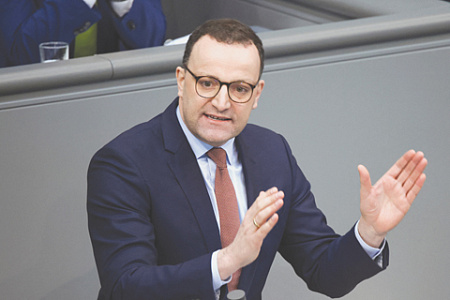
A significant and once-taboo debate has erupted in Berlin over Germany’s potential role in nuclear deterrence, a move that would shatter decades of post-war policy. Top politicians are now publicly discussing the creation of a European “nuclear shield,” a dramatic re-evaluation of national security driven by fears of a resurgent Russia and growing doubts about the long-term reliability of the US security guarantee.
The discussion was thrust into the spotlight by Jens Spahn, a senior figure in the Christian Democratic Union (CDU) and a close ally of Chancellor Friedrich Merz. Spahn argued in a recent interview that in light of a potential US shift towards an “America First” policy, Europe needs its own nuclear deterrent with a leading role for Germany. This represents a stark pivot from just months ago when Merz, then a candidate for chancellor, rejected the idea of Germany acquiring nuclear weapons.
At the core of the debate is the critical question of who would control such a weapon. Germany currently hosts US nuclear bombs under a NATO sharing agreement, but the decision to use them rests solely with Washington. While France has offered its nuclear forces as a potential umbrella for Europe, German leaders are skeptical that Paris would cede control. Spahn has controversially suggested a shared European command structure, possibly with rotating authority, to create strategic ambiguity for adversaries, namely Moscow.
The proposal has triggered a fierce political backlash. The Social Democratic Party (SPD) has condemned the initiative as a dangerous step away from non-proliferation, with one leading politician labeling Spahn an “adventurer” whose logic would turn the world order into a “jungle.” Representatives of The Left party have called it one of the most “grandiose mad plans in German history,” comparing it to failed nationalist ambitions of the past.
The Green party, which has its roots in the anti-war movement, finds itself divided. While some members hold to the party’s traditional demand for the complete removal of nuclear weapons from German soil, others, citing the threat from Russia, are beginning to view nuclear deterrence as a grim necessity. Meanwhile, the right-wing Alternative for Germany (AfD) has also voiced doubts about the adequacy of existing US, British, and French protection, indicating that the anxiety over security is resonating across Germany’s complex political landscape.
